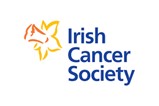

(17th May 2021) Progress must be made to improve survival gains among adolescents and young adults (AYA) with cancer in line with gains for other age groups, a new Position Paper has recommended.
The Paper recently published in ESMO Open, the journal of ESMO (European Society of Medical Oncology), explores a number of issues for AYA with cancer aged 15-19, including a lack of equitable access to specialised, age-appropriate centres with age-appropriate multidisciplinary care, and the lack of available clinical trials with novel therapeutics. As a result, survival gains have improved only modestly compared with older adults and children with cancer, according to the Paper which addresses deficiencies in AYA services across Europe.
The most common cancers in this age group are leukaemia, lymphoma, thyroid cancers, brain and spinal cord tumours, testicular cancer and sarcoma.
Priorities in an Irish context include the delivery of a dedicated AYA facility in the new children’s hospital with an increase in bed numbers for cancer patients from the current 19 for under-16s in Crumlin to 28 in the new hospital, with the age limit increased to 20 years, as recommended in the current National Cancer Strategy.
In the meantime, four of the country’s cancer centre hospitals are earmarked to act as specialised AYA centres (with day care and outpatient clinics), operating as ‘spokes’ off the CHI at Crumlin ‘hub’ which will enable easing of AYA with cancer into adult services.
ESMO partnered with the European Society for Paediatric Oncology (SIOPE) in 2015 and established the joint Cancer in AYA Working Group. The aim of this Group has been to increase awareness among adult and paediatric oncology communities, enhance knowledge on specific issues in AYA and ultimately improve the standard of care for AYA with cancer across Europe.
The Position Paper published in ESMO Open recommends diversifying interprofessional cooperation in AYA care and specific measures to improve trial accrual, including centralising care where that is the best means to achieve trial accrual. Overall, the pan-European joint Cancer in AYA Working Group is working towards a common vision that can lead to improved outcomes for AYA with cancer in Europe.
Speaking about the challenges for AYA with cancer and the recommendations in this Position Paper, Owen Smith, Professor of Paediatric and Adolescent Haematology, UCD, Consultant Haematologist, CHI at Crumlin, member of the ESMO/ SIOPE AYA Working Group and Position Paper author said ‘When an adolescent or young adult is diagnosed with cancer, this has a complex psychological, social and financial impact on their young lives during a period of rapid physiological, personal and psychological growth. The impact of such a diagnosis on their overall well-being can therefore be profound.’
Professor Smith was appointed as National Clinical Lead for children and adolescents in 2019 by the National Cancer Control Programme (NCCP). This was a post recommended by the National Cancer Strategy (2017-2026), which for the first time, recognised AYA cancer patients as a distinct group.
‘In Ireland, the five-year survival rate for all childhood cancer is 81%. However, the paediatric cancer programme that is working so well needs to be rolled out for adolescents and young adults with their range of unmet and complex needs. While there are several strands in the new national AYA programme to improve outcomes, the key is to get these young people on to clinical trials of novel therapeutics, as we have done so successfully within the paediatric services.”
Also speaking on the publication of this ESMO/ SIOPE Position Paper, Prof Peter Doran, Associate Dean for Research, Innovation & Impact, UDC School of Medicine agrees ‘Access to clinical trials protects patients and can vastly improve outcomes. We need to provide more children and adolescents with the opportunity to avail of clinical trials and work with our colleagues in adult oncology services who are treating all patients with cancer over 16 years. A €12 million collaborative project between Systems Biology Ireland in UCD and the European Molecular Biology Laboratory is also examining and unravelling the genomic landscape of cancers in this age group, to identify and better understand the relationships between environmental factors and the genetic adaptation of organisms in response to these factors.”
Commenting on the Position Paper, Irish Cancer Society Director of Advocacy Rachel Morrogh said: “This position paper highlights the need for accelerated progress in improving survival rates and quality of life amongst adolescents and young adults with cancer, and its recommendations should be adopted in Ireland. While there have been improvements made over recent decades in many areas of cancer care, this particular group of young people have been left behind.
“Adolescents and young adults have unique needs which are very different from children or older adults. The implementation of the National Cancer Strategy and the delivery of the dedicated AYA facilities in four cancer centres as well as in the new children’s hospital are critical components to improving experiences of both patients and their families.”
References